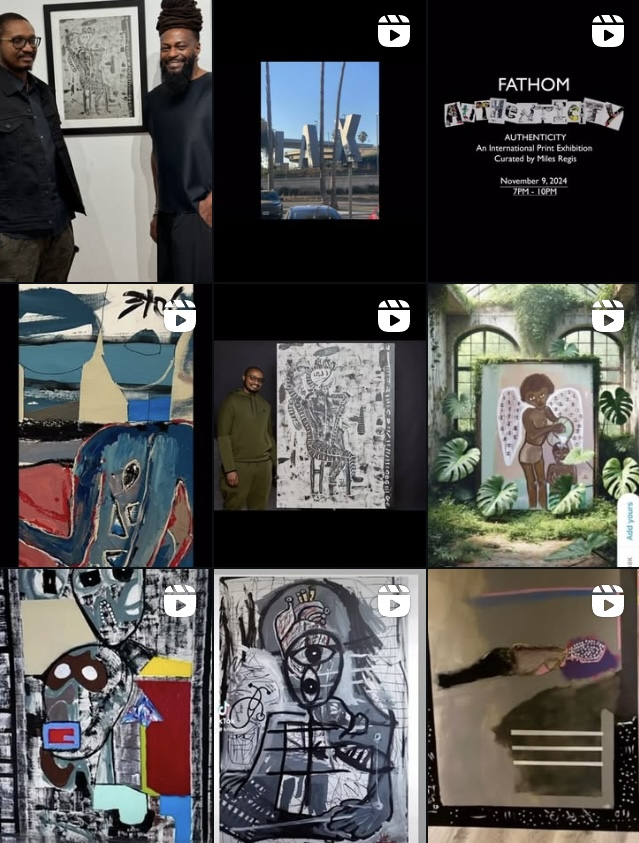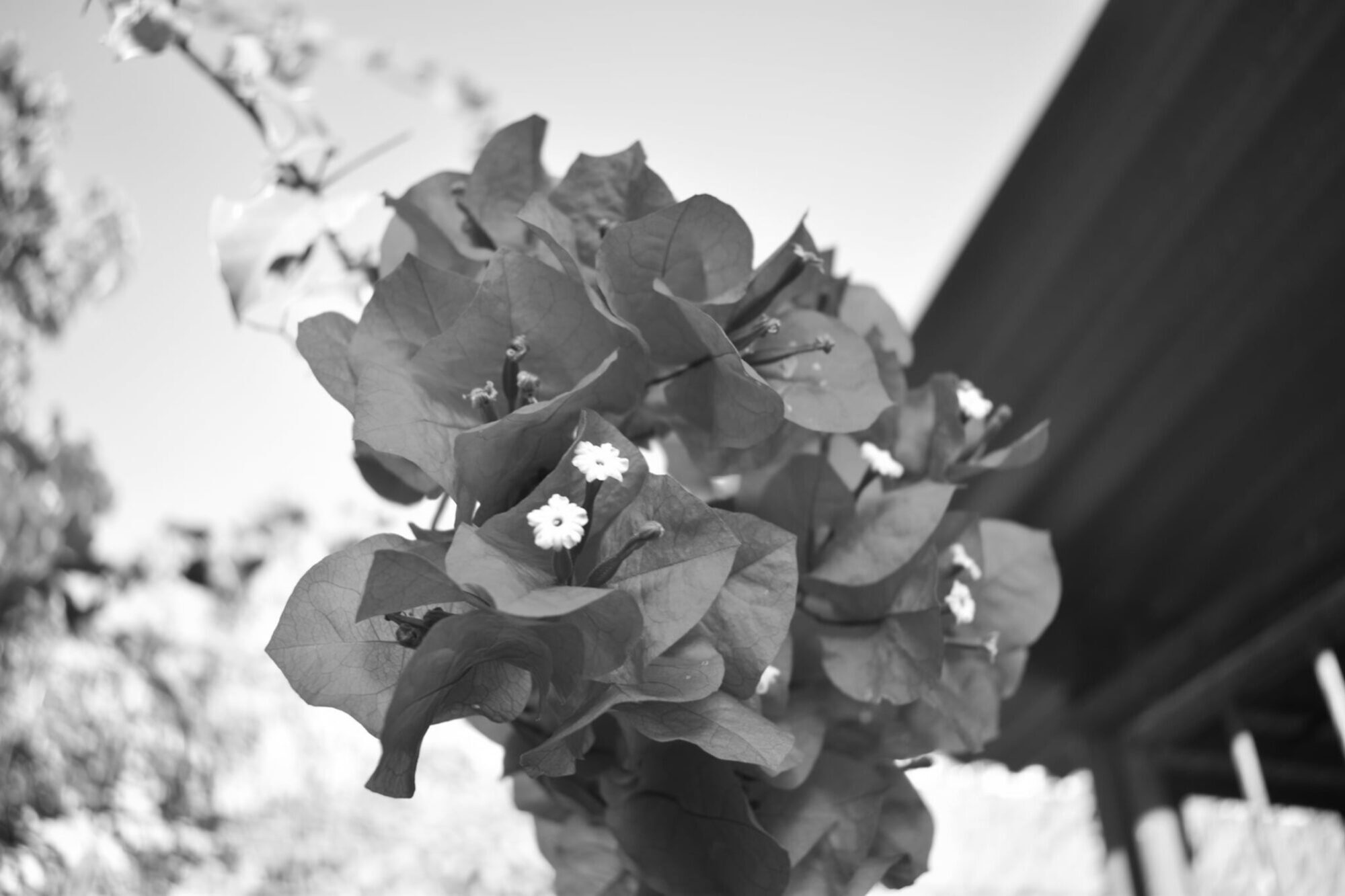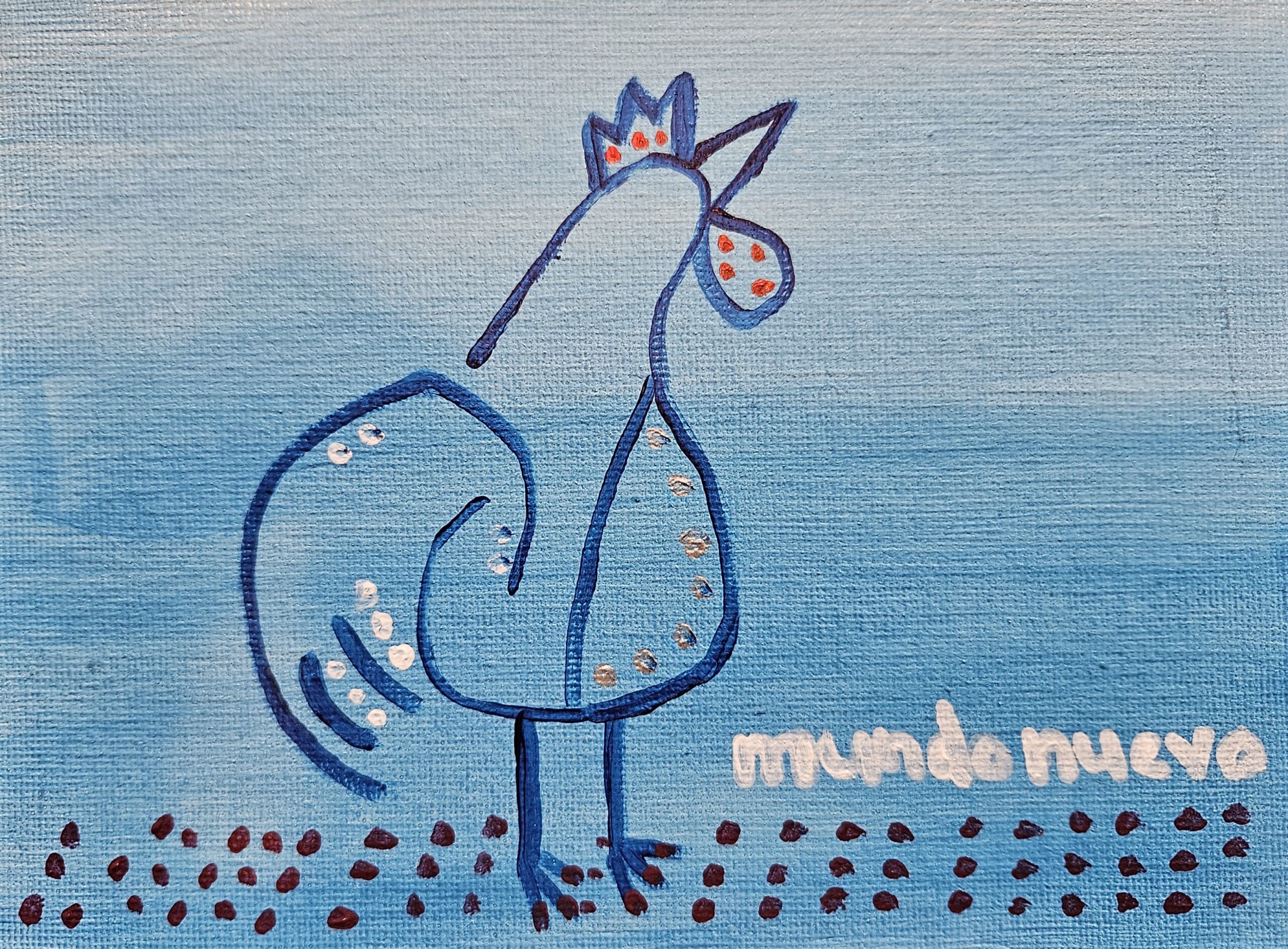Khalid Romain (born October 18, 1980) is a dual citizen of Trinidad and Tobago and Canada. We crossed paths on social media a few weeks ago. Romain attended secondary school at Trinity College, Moka and Queen’s Royal College in Trinidad and Tobago and went on to pursue higher education at Howard University, Washington D.C. He is a poet and painter whose works explore affective fields of humanity throughout the African diaspora. On April 10, 2025, I interviewed Romain via Zoom meeting.
Amílcar Sanatan: You lived in the USA, UK, Canada and Trinidad and Tobago. Yet, your works, aesthetically and politically, are grounded in the context of Trinidad and Tobago. I get the sense that you are committed to driving a Trinbagonian perspective of art throughout the world.
Khalid Romain: I am from Trinidad and Tobago unapologetically. I believe that we are unique and amazing people. Trinidad and Tobago is a unique place. We have produced many legends and I hope that my contributions, where art is concerned, will also be great and inspire others to be great. I come from a special place and I am very proud of that fact. We are a jewel. Anywhere we go, we make places and countries better. We make the world better. We always highlight the wine and jam where carnival is concerned, but there is also a resilience we possess.
AS: In your Artist Talk at the BAND Gallery, you discussed taking up your artistic practice more seriously during the COVID-19 pandemic. Discuss your journey as a visual artist.
KR: I have been painting since 2010. Roderick Turner, whom I met in the Ethiopian Orthodox Church in Washington, D.C. introduced me to painting. Turner first told me, “Khalid you are an artist.” This was in 2009 or 2010. I painted backgrounds. Roderick Turner made me pick up a paintbrush. I started to respect it because I liked how mixing colors and applying it to the canvas made me feel. It was not until the COVID-19 pandemic that I started to take my practice seriously and began painting daily. That discipline has led me to four group exhibitions, one auction and one solo show to date.

Screenshot of Khalid Romain’s Instagram profile (@kingkrom_). Extracted April 22, 2025
AS: In July 2023, you had your first solo exhibition, “Whenever Whenever Comes.” “Whenever” speaks to an unlikelihood and “Whenever Comes” brings about a sense of preparation and an acknowledgment of inevitability. The title, in some ways, comments on futures. What were some of the themes you were working with in this exhibition?
KR: Whenever whenever comes
We will pen air and dance to heartbeat
Sip dew from daybreaks
We doubted ever seeing
Whenever Whenever comes
I will never doubt Ever again
For she came in and stayed
Resting in the rest of me
I grew up in a Caribbean household. Though I achieved a lot, my mother and father expressed great anxiety about me because they felt I was not “self-actualising” fast enough. They would say, “when are you going to settle down?” My response to their question, steeped in anxiety, was “whenever, whenever comes.” I am saying this to explain that my first solo show was a time lapse on canvas depicting my journey. It displayed the thoughts I had and the experiences I went through. This was my attempt to answer the anxious existential question of my parents putting pressure on me to succeed in a linear fashion.
AS: Before we exchanged our contact information, I came across your painting, “My Favourite Chair” (2024). This painting is a tribute to the intimate relationship between you and your wife. Here, art is used to express affection.
KR: My wife is a very loving, gentle soul. If the couch has a vacant space, she still chooses to sit on my lap. My wife enjoys being close to me and vice versa. By painting, I feel like I am creating time capsules.
AS: Losing a parent can be a major event in our lives. In the life of an artist, it can be a cataclysmic event that brings about senses of chaos, urgency, and even purpose. Did your father’s death impact your work in specific ways?
KR: I feel my father. He is here with me. I feel my father’s presence when I enter my home space after being absent for a while. I hear my mother. I listen to my mother and console her. She really loved my father. She makes me desire that kind of communion. My father was not a perfect man in certain ways. He was small, but he was mighty. He lives in my heart. I don’t live with the issues of his death. I feel as if I help others resolve their problems with death.
Everything that impacts me goes into my work. I am a charged individual. I cannot paint anything that does not move me.
Khalid Romain: Why did you want to interview me?
Amílcar Sanatan: I am in the process of improving my website. Blogs were much more in fashion in the 2010s, but I appreciate that my blog can be a space to sustainably archive the voices of people and visions in places as I journey through life. Who can I platform in a short, quick and accessible format? You followed me on Instagram and wrote to me asking about the social history of Trinidad and Tobago, specifically the 1990 coup d’état. Viewing your artwork and seeing your work ethic through your Instagram stories inspired me. I was proud to see a Trinbagonian in his early forties make a mark for himself and our culture in North America. You were successful to me. I wanted to celebrate the work you created up to this point. I wanted to let you know that you are seen by us at ‘home’.


Love this. Keep them coming.